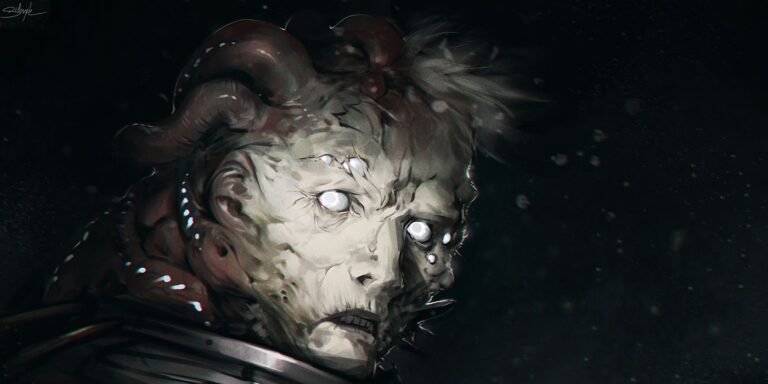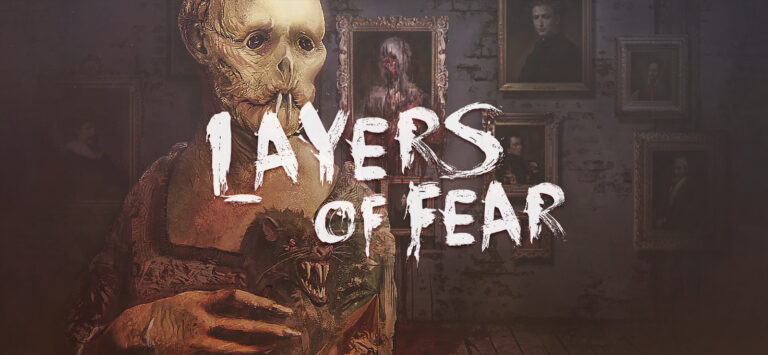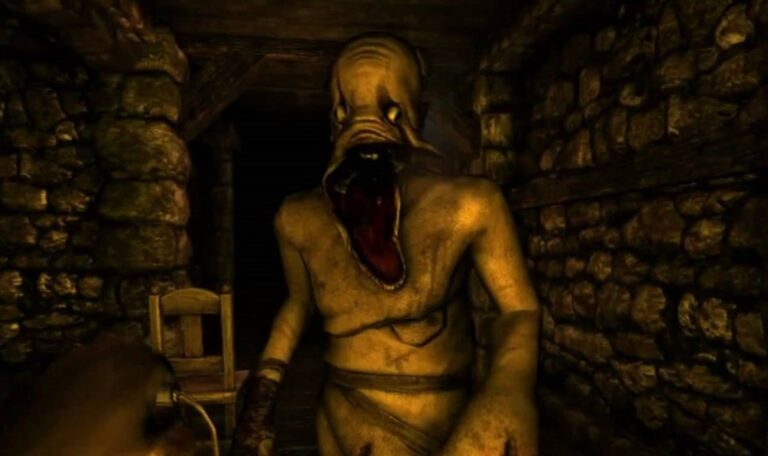The ocean is a graveyard that never sleeps. It holds our wreckage and our secrets: old warships rusting in the brine, whispers of ghosts trapped in rivets and pipes. Man of Medan, the first installment of Supermassive Games’ Dark Pictures Anthology, drags us down into that brine and asks: What happens when our worst fears aren’t ghosts, but ourselves?
This is no simple ghost ship yarn. It’s a rotting Freudian echo chamber — a nightmare fueled by paranoia, toxic masculinity, colonial guilt, and the festering dread that your mind is the most haunted place of all.
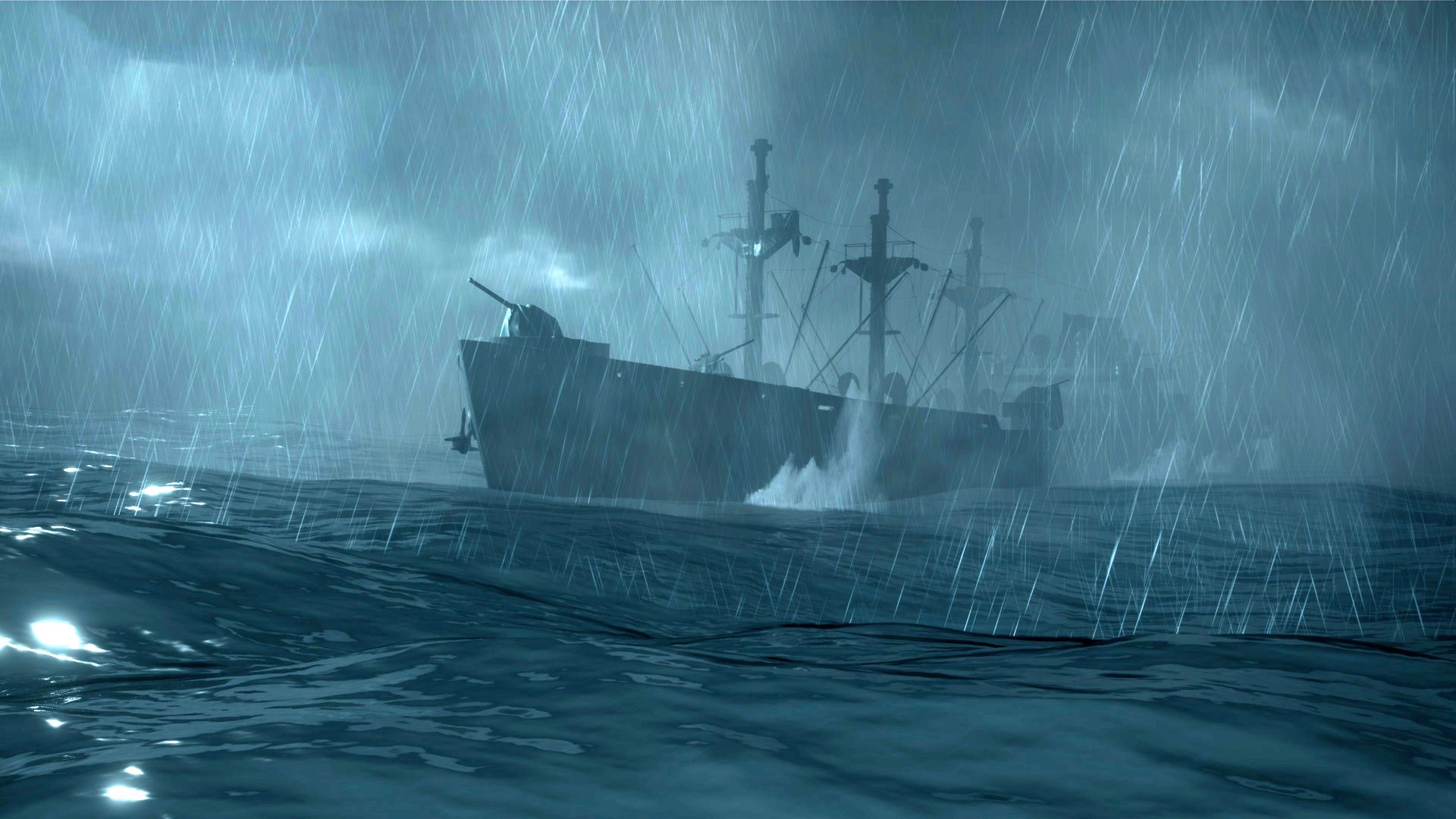
The SS Ourang Medan: An Urban Legend Made Flesh
Man of Medan resurrects a maritime myth: a doomed vessel found adrift with its crew frozen in terror, eyes wide, mouths agape. The ship itself — the Ourang Medan — is a steel sarcophagus, a claustrophobic purgatory where war relics and human frailty ferment in the dark.
Here, the Manchurian Gold — that precious, cursed cargo — is no glittering treasure. It’s a chemical hallucinogen, a gas that seeps into the lungs and cracks the mind open like a barnacle. It’s the monstrous stand-in for all the traumas men carry home from war — PTSD in vapor form, drifting through corridors lined with rotting meat and whispers.
In Man of Medan, the real ghost is the human brain under siege. The player never fights monsters — they fight themselves, hallucinating horrors dredged from their private fearscape.
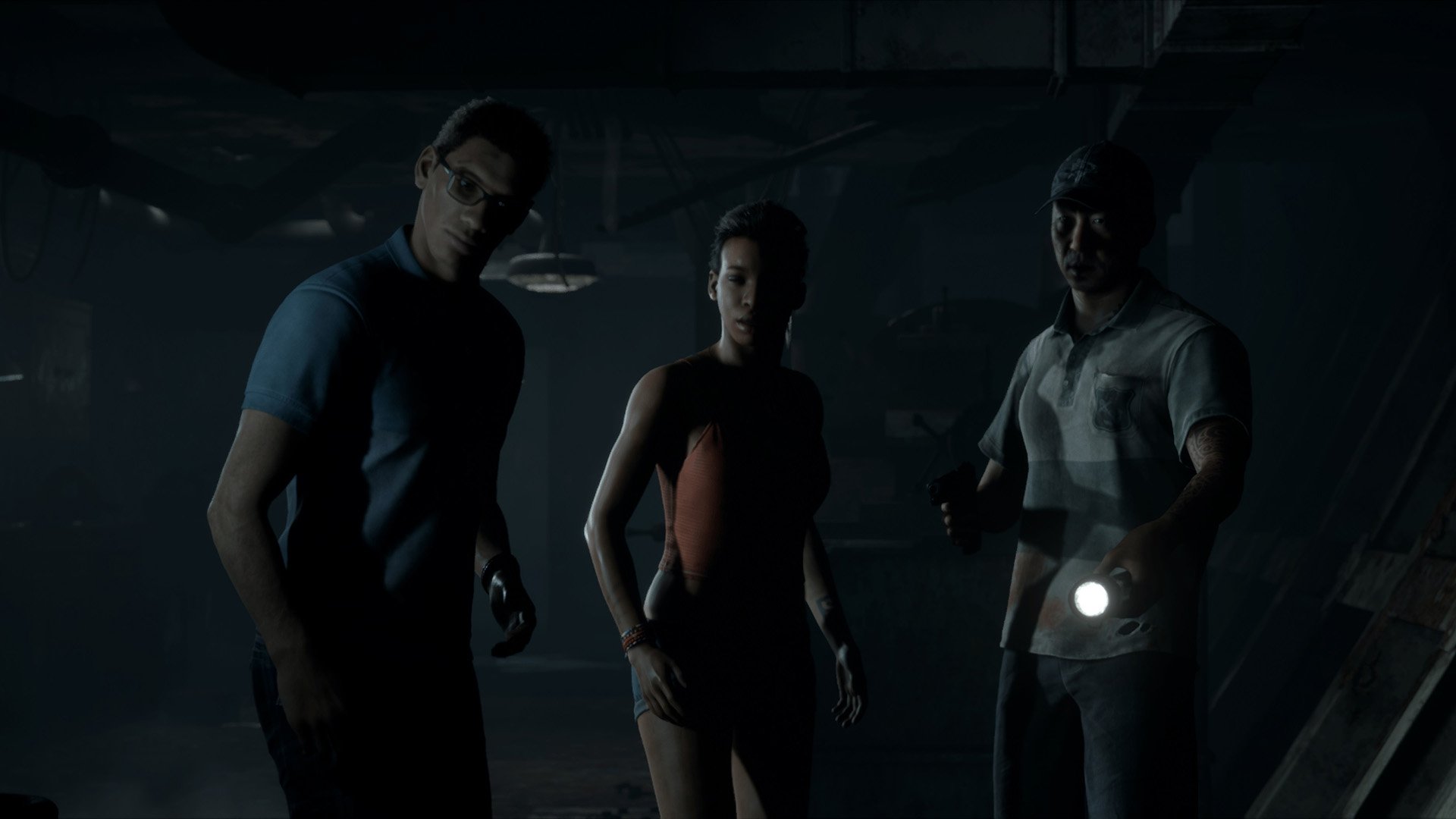
Toxic Masculinity Adrift
Look at our core cast: Alex, Brad, Conrad — boys with something to prove, egos bobbing like life vests in shark-infested water. This is frat-boy bravado shipwrecked. They swagger and bicker, flexing emotional muscles they never learned to use properly. When the hallucinations hit, each character’s inner weakness becomes the weapon that guts them. It’s a grim Jungian buffet — your Shadow made real, teeth bared.
Even the pirates who hijack the group are tragic echoes of this theme: men trapped in cycles of violence, desperate for control over a rusting tomb they can’t comprehend. Power on the Ourang Medan is an illusion — the ship always devours its captors.
Gaslight, Gatekeep, Ghost Ship
Man of Medan weaponizes paranoia. The chemical fog shatters trust and erodes reality until every creak of the hull becomes an accusation. This is classic folie à plusieurs — a madness shared by many. The same rotting corridor looks different to each set of eyes. That’s the game’s dirty trick: it’s not about jump scares, it’s about the creeping terror that your own senses will betray you.
Freud would grin his cigar-stained grin at this. The id, ego, and superego are all on board, clawing each other apart in a pitch-black cargo hold. You are your own final boss.
![]()
The Sea Is a Mouth That Never Closes
Where Until Dawn gave us snowy slasher tropes, Man of Medan soaks us in maritime gothic. The sea is an abyss that feeds on hubris. The Ourang Medan is a ghost story born of imperial plunder, a floating metaphor for secrets buried at sea — where no one can hear your last scream before the waves reclaim you.
The game’s moral ambiguity twists the knife: save your friends, or watch them slit each other’s throats in a hallucinated panic. And even if you survive, what have you really escaped? You can’t outrun the poison leaking from the past. You just become the next ghost in the fog.
The Eternal Drift
When the credits roll, the ship drifts on — a rusting oracle of our oldest fear: that hell isn’t below, but in our heads. Man of Medan doesn’t care if you believe in ghosts. It knows you believe in yourself — and that’s the real horror. Because what if you’re the monster in your own dark water?
So next time you hear a ghost ship’s bell echo across the midnight sea, remember: it’s not calling for you. It’s calling from you.
![]()
